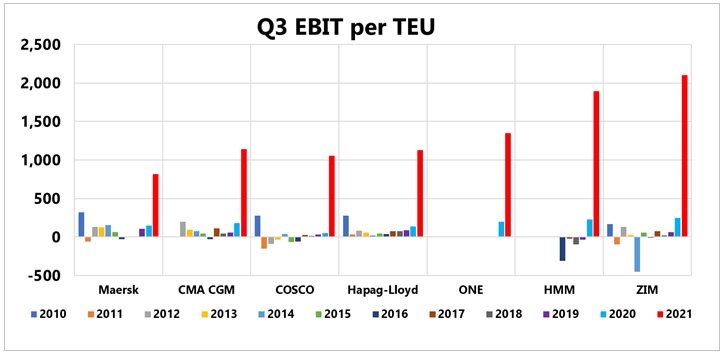HIGHLIGHTS
- In January 2020, spot freight rates between Asia and the US increased by 100% and freight rates between the US and Asia by more than 1,000% over the same period.
- In the face of ongoing challenges and inadequacies, regulators are taking steps to lower consumer prices and create a new playing field for the shipping industry.
FULL ARTICLE
Challenges and inadequacies
According to the White House, the world’s top three shipping alliances are entirely foreign companies, which now control 80 percent of global containership capacity and control 95 percent of vital East-West trade routes. This, in turn, allows them “to raise prices for American businesses and consumers, while threatening the national security and economic competitiveness of the United States.”
Since the beginning of the pandemic, shipping lines have sharply increased shipping fees through increased rates and fees. In January 2020, spot freight rates between Asia and the US increased by 100% and freight rates between the US and Asia by more than 1,000% over the same period.
Besides, container shipping lines also hurt businesses, especially American farmers. Given their market power, these alliances can cancel or change bookings and impose additional fees without notice, undermining American businesses’ ability to deliver orders on time. Instead of taking on American exports, ocean carriers are preferring to speed back to China with an empty vessel for faster turnaround. This makes it difficult for farmers to ship their agricultural products overseas with any reliability or predictability.
Along with that, shipping lines have also directly contributed to port congestion when imposing “box rules”. They require truckers to use only certain trailers to transport their containers. This results in lower wages and longer waiting times for truckers, who are paid per shipping container.

Strengthening antitrust supervision of the shipping industry
In the face of ongoing challenges and inadequacies, regulators are taking steps to lower consumer prices and create a new playing field for the shipping industry.
Accordingly, the Department of Justice (DOJ) and the Federal Maritime Commission (FMC) announced a new joint initiative. The DOJ will provide FMC with the assistance of attorneys and economists from the Antitrust Division to enforce violations of the Shipping Act and related laws. In return, FMC will provide the Antitrust Division with support and expertise in the maritime industry.
In addition, FMC will continue to strengthen oversight of the global shipping industry. Since last summer, the FMC has set up a new audit program supported by an audit team to address complaints about carriers charging unfairly, asking the carriers to explain about their fees.
The administration led by Ports Special Envoy John Porcari, has also worked with the Port of Los Angeles and Long Beach to develop new rates for shipping companies for leaving cargo on docks longer than 9 days.
Phuong Anh
USA: Motivation to promote enterprises producing in the country due to supply chain issues













